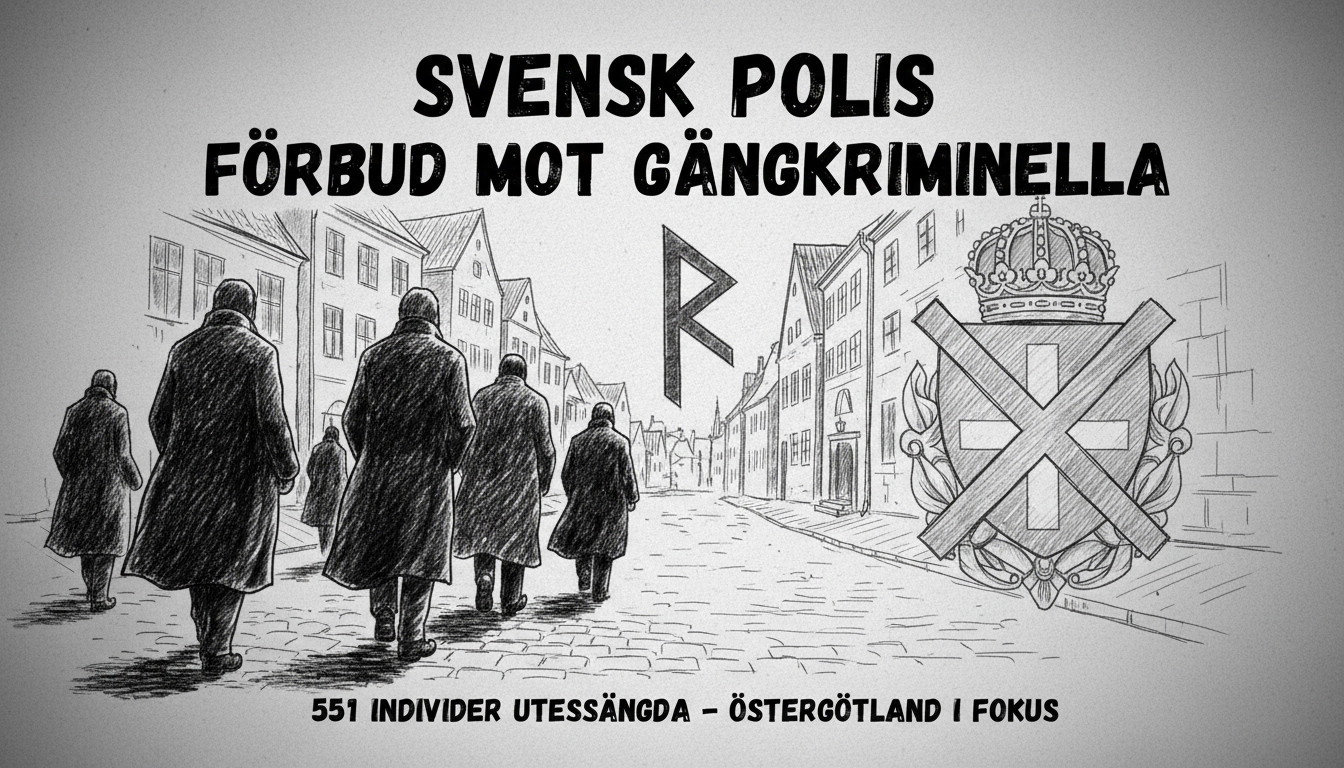Swedish authorities have implemented preventive bans against 551 individuals across the country since new legislation took effect in February. The law grants police expanded powers to exclude people from public spaces when they suspect criminal activity might occur.
In Östergötland county, police have issued just six such bans so far. Authorities applied one ban in Norrköping and five in Linköping. All targeted individuals belong to criminal gangs according to police records. Several held leadership positions within their organizations.
Malin Axelsson, a prosecutor in Linköping, described the legislation as an important tool for crime prevention. She explained that police apply the bans when they determine specific conditions are met. Authorities focus on individuals they have identified as potential threats to public safety.
Police records show most bans in Östergötland concentrate in Skäggetorp, a Linköping neighborhood classified as particularly vulnerable. Area police officer David Williamsson noted the constant challenge of monitoring criminal networks. He explained that as established criminals leave, new ones often take their place.
The banned individuals were reportedly involved in drug trafficking and recruiting children into criminal activities within their excluded areas. Police documents reveal these gang members operated in neighborhoods where they now face restrictions.
This approach represents Sweden's evolving strategy against organized crime. The country has gradually expanded police powers to combat gang violence and public insecurity. The preventive ban legislation forms part of broader government efforts to increase safety in public spaces.
International observers note Sweden's shifting approach to public safety mirrors trends in other European nations. Many countries now prioritize preventive measures alongside traditional law enforcement. The Swedish model emphasizes early intervention before crimes occur.
Local residents in affected areas report mixed reactions to the new measures. Some welcome increased police presence and exclusion of known criminals. Others express concerns about potential overreach and the subjective nature of threat assessments.
Police authorities indicate they continue monitoring for additional individuals who might meet criteria for exclusion. The relatively low number of bans in Östergötland suggests either careful application of the law or limited identification of qualifying suspects.
Legal experts debate the balance between public safety and individual freedoms under the new legislation. The law's implementation will likely face continued scrutiny as courts handle potential challenges to police decisions.
Sweden's gang violence problem has drawn international attention in recent years. The country has experienced increasing incidents of explosions and shootings connected to criminal networks. These security concerns have prompted legislative changes and increased police resources.
The preventive ban system represents one component of Sweden's multifaceted approach to organized crime. Authorities combine these exclusion orders with other measures including surveillance, financial investigations, and international cooperation.
Police in Skäggetorp and other vulnerable areas continue their daily work of identifying new threats. They face the ongoing challenge of criminal networks adapting to enforcement measures. The effectiveness of preventive bans will become clearer as more data accumulates about their impact on crime rates.

